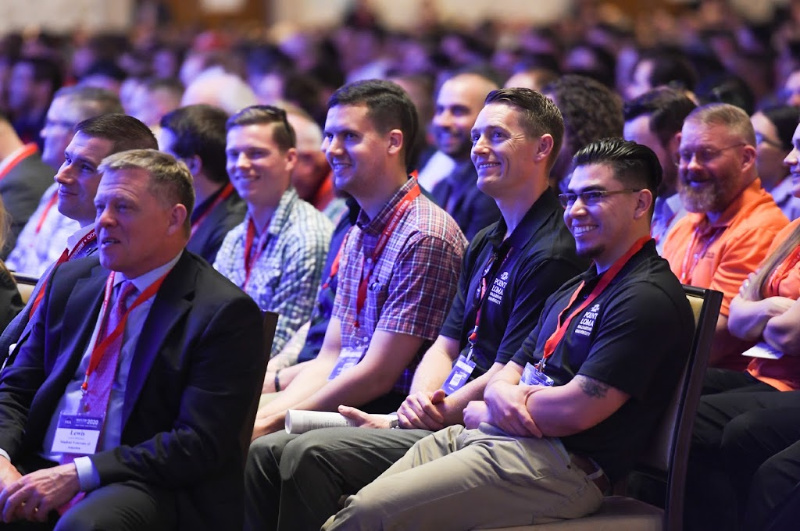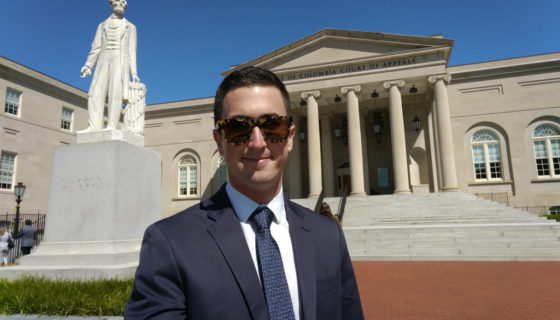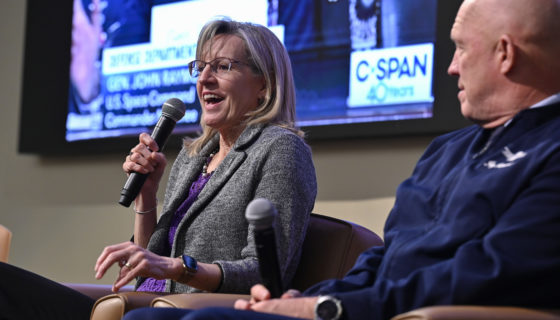Student Veterans: Talent Hiding in Plain Sight

Hiring Our Heroes and Student Veterans of America (SVA) are working together to help employers connect with an underserved talent pool – student veterans.
“Employers often say that they can’t find veterans,” said Jared Lyon, president and CEO of Student Veterans of America. “Hiring Our Heroes is an expert at converging employers with veterans. Student Veterans of America is the largest network of student veterans. These two great organizations have a mutual interest in the same population and we want to serve veterans better.”
By the Numbers: Student Veterans
Each year, 200,000 service members leave military service and transition into civilian life. That can translate to as many as 200,000 veterans per year who are seeking civilian career opportunities nationwide. Very few veterans who serve less than six years in the military will continue to live near their last duty station. Many will return to their home states. Others will cast a wide net and move where the best civilian job offer takes them. Yet wherever they call home after service, most—in fact, more than half—will turn their focus to their education.
Student Veterans of America research shows that more than 115,000 student veterans per year enroll in college. And they are combining the skills and expertise gained in military service with some very competitive degrees.
According to SVA’s 2017 National Veteran Education Success Tracker (NVEST), veterans are more likely to earn academically-rigorous degrees sought after by leading public and private sector employers. Veterans are more likely to graduate and to attain degrees in the fields of business, health, and science, technology, engineering, and math (STEM), compared to their non-veteran student counterparts.
Student veterans earn on average a 3.35 GPA, compared to the national average of 3.11.
Veterans utilize their GI Bill benefit to pay tuition and work either part time or full time to support their families. Lyon said that 50% of student veterans are married with children.
“We know about 50% of all student veterans work full time while in college and about 25% work part time,” Lyon said. Typically, Lyons says, student veterans work in the service industry while earning their degrees. Service industry jobs provide immediate necessary income and flexible schedules, while not requiring a degree.
Investing in Student Veterans Is an Investment in the Future
SVA and Hiring Our Heroes work together to help employers understand the value that student veterans can bring to the civilian workforce, and how investing in student veterans is an investment in the future of their organizations.
“Student veterans comprise a largely untapped talent pool for employers, due to the combination of experience, leadership, contemporary education, and thought leadership they are bringing to the workforce, all while continuing to pursue competitive educational degrees that will advance their careers,” said Hiring Our Heroes President Eric Eversole. “Their starting point is further in the trajectory than most college students, so Hiring Our Heroes leverages our vast network of state and local Chambers of Commerce and collaborates with SVA to build a movement across America to provide businesses with a pipeline of top military connected talent.”
“Student veterans comprise a largely untapped talent pool for employers.”
Eric Eversole, president of Hiring Our Heroes
With Hiring Our Heroes and Student Veterans of America working together, Lyon is hopeful that more student veterans will find meaningful employment while they are enrolled in college.
“For employers looking for the next big thing in military hiring, this is it,” Lyon said.
Recruit the Student Veteran, Retain the Employee
Oftentimes, companies focus their recruitment efforts on recent graduates at college campuses. But these same companies have non-degree job openings and need qualified candidates to fill those positions too.
Lyon recommended that companies consider recruiting student veterans for these non-degree roles.
“We want employers to recruit smarter on college campuses,” Lyon said. “There are one million veterans attending college every year. That’s a huge talent pool hiding in plain sight.”
By hiring a student veteran, companies gain an employee with demonstrated leadership skills and a teamwork mentality. In turn, veterans learn industry specifics that make them valuable job candidates after they earn their college degrees.
“For employers looking for the next big thing in military hiring, this is it.”
Jared Lyon, president and CEO of Student Veterans of America
Lyon also suggested that employers offer student veterans paid internships with housing stipends.
“Veterans make awesome candidates for internships. We know that 90% of hires happen from internships, so we are working with employers to understand why veterans may not be taking their internships,” Lyon said.
It goes back to the fact that half of student veterans are married with children. They are not young adults, just starting out. They turn down unpaid internships because they need income to support their households. Veterans can’t afford to relocate for a summer internship.



